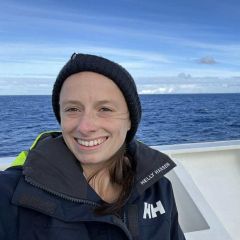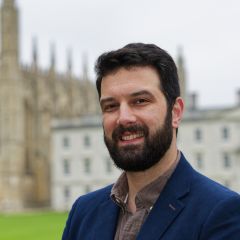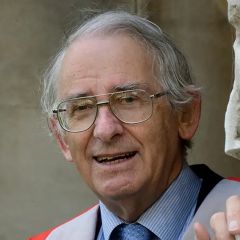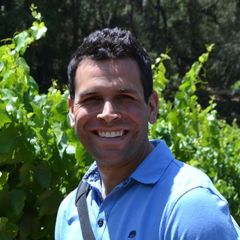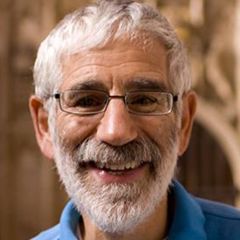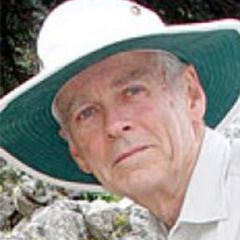Natural Sciences (Physical)
The Natural Sciences Tripos is the framework within which sixteen different Faculties and Departments at Cambridge deliver undergraduate training in a wide range of physical and biological sciences, as well as the history and philosophy of science. Students apply to study either Natural Sciences (Biological) or Natural Sciences (Physical).

Course overview
The Natural Sciences Tripos provides students with a multidisciplinary scientific background, increasingly important in modern science, before allowing them to specialise in their chosen subject. The course therefore provides the intellectual breadth and depth which allows students to both experience new areas of science and to make connections across traditionally discrete disciplinary boundaries, substantially enriching their understanding of their specialist subject. All Natural Sciences students study for three years, leading to a BA degree, and some continue to study for an additional fourth year, leading to a MSci degree.
Physical science subjects at Cambridge include:
- Astrophysics
- Chemistry
- Earth Sciences
- Materials Science
- Physics
There is significant flexibility, however, within the Tripos, and students admitted to Natural Sciences (Physical) can choose from a variety of courses (including biological and physical science options), although specific subjects have essential or desirable prerequisites.
For more information about the course and its modules, visit the University website.
What is it like to study Natural Sciences (Physical) at King’s?
King’s is a medium-sized college which admits a relatively even balance of scientists and non-scientists. Each year, King’s admits around eight physical natural scientists, making it one of the largest subjects in the college and ensuring that students are part of a large and friendly community. The King’s Natural Sciences (Physical) Fellows are a mixture of teaching- and research-focused academics who between them have expertise in Chemistry, Earth Sciences, Materials Science, and Physics. All Fellows are actively involved in supervising students (most often in pairs, sometimes in trios), directing studies, and looking after students’ academic progress and welfare. King’s is fortunate to be able to offer research internship opportunities through its Summer Research Programme, and physical natural scientists regularly make successful applications to gain research experience and work in research laboratories across Cambridge. From some, this is often the first step towards a research career, including a potential application for postgraduate study (e.g. a PhD).
What do we look for in an applicant to Natural Sciences (Physical)?
We are looking for applicants who have sufficient knowledge in maths and science to be able to successfully tackle challenging and diverse first year content, a good understanding of core mathematical and scientific concepts as learnt in school, the ability to apply those core concepts in an unfamiliar setting, the ability to rapidly assimilate and then apply new information, and the ability to work independently. The best applicants also listen carefully, are determined, are inquisitive, and respond well to feedback. The King’s Natural Science (Physical) Fellows believe firmly in the benefits of students exploring a range of scientific disciplines, including those they haven’t studied before, and therefore particularly welcome applications from students who are open-minded about their likely eventual specialism.
Requirements
A Level: A*A*A with A* in Mathematics
IB: 41-42 points overall with 7, 7, 6 at Higher Level
Subject requirements: Mathematics (A Level) or Mathematics Analysis and Approaches Higher Level (IB), one of Chemistry or Physics, and one other science or maths subject
Admissions assessment: Engineering and Science Admissions Test (ESAT)
Written work: None
Admissions assessment
Candidates for Natural Sciences (Physical) must take the ESAT, which is a pre-registration required test. The Mathematics 1 module is compulsory for all candidates, and you will then need to complete two additional multiple-choice modules from Biology, Chemistry, Physics, and Mathematics 2. For more information about the test, please see the University website.
Careers and graduate opportunities
The Natural Sciences course prepares students well for the challenges of research, especially in emerging, interdisciplinary areas. Many graduates continue with further study or research, and many go directly into a broad range of careers, including programming and software development, financial management, management consultancy, and teaching.
What is the best thing about studying Natural Sciences (Physical) at King’s?
Celebrating the end of exams with the Fellows and all the King’s Natural Sciences (Physical) students at the end-of-year party in the beautiful Fellows’ Garden!
A top tip for applicants to Natural Sciences (Physical) at King’s
Practise explaining your thinking out loud to others when solving maths and science problems. You could, for example, explain a problem to another student in your class and encourage them to ask you probing questions which you should then try your best to answer.
People
The Directors of Studies for 2025-2026 are Dr James Dolan (Part IA), Prof. Nicholas Tosca (Part IB, Part II Earth Sciences, and Part III Earth Sciences), Dr Tiffany Harte (Part II Physics and Astrophysics and Part III Physics and Astrophysics), Dr Shannon Bonke (Part II Chemistry and Part III Chemistry), and Dr Rob Wallach (Part II Materials and Part III Materials).

